
Location: Mostly in Kalimantan, Borneo, Indonesia (also undertakes work throughout Indonesia)
The Centre for Orangutan Protection (COP) is a direct-action group of Indonesian people who campaign to bring an urgent end to the destruction of Indonesian rainforest and the killing of orangutans. COP operates numerous teams in the field to run its programs. These teams work under supervision of COP Headquarters from Jakarta. The HQ Office itself is responsible for communication, marketing, advocacy campaign and litigation.
Partnering with The Orangutan Project, the COP team investigates and exposes illegal activities and presses the authorities to take action, supporting them to enforce the law when needed. COP has confronted numerous large palm oil and paper and pulp companies about their land clearing activities and has assisted with jailing people who have committed forest crimes including killing orangutans. COP develops public awareness campaigns, organize and participate in high profile protests and take direct action in the field against illegal logging. They conduct rescues of displaced orangutans in the field or illegally held captive orphaned orangutans. COP also run ‘COP School’ every year where passionate students come together to learn more about orangutans and practical ways to be involved with the conservation and protection.
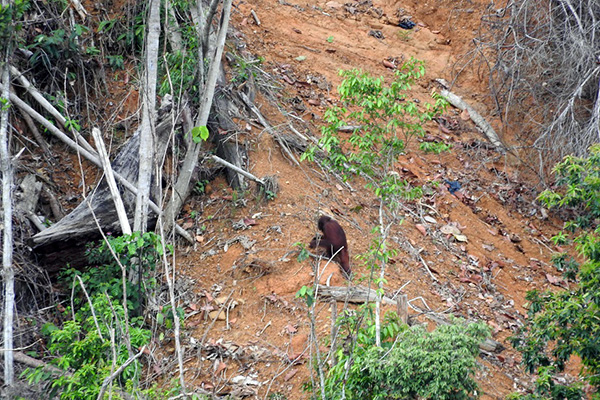
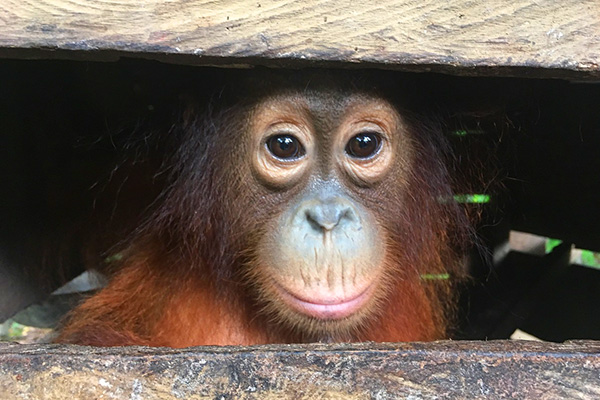
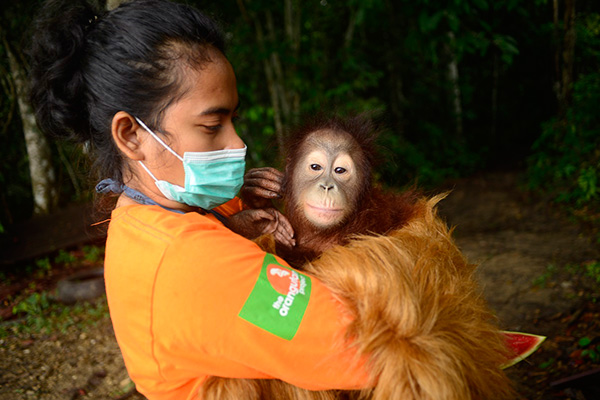
COP opened an orangutan rescue and rehabilitation centre called ‘COP Borneo’ in April 2015. It is located in the Labanan research forest in East Kalimantan and has the status of Special Designated Purpose Forest. COP Borneo has a range of facilities including a block of quarantine cages, socialisation cages and one small medical clinic/baby house. It also has facilities for COP staff including a dormitory for staff that stay overnight to care for sick or infant orangutans. COP has numerous teams in the field that investigate and confiscate illegally held captive orangutans. Most of these are young orphan orangutans whose mothers have been brutally killed. Once rescued from often squalid conditions, these vulnerable orphans will undergo a full medical check and quarantine period at COP Borneo before being introduced to other orangutans at the centre. Many confiscated orangutans are very young and require regular milk feeds. These youngsters have full time carers during the day and night so they receive the care that they would have had from their own mothers.
After the young orangutans have completed their quarantine period, they can then take part in forest school where they develop the required skills needed for release into the forest. These skills include nest building, traveling in the canopy and being able to identify and access various forest food sources including fruits, leaves, bark, cambium and insects. Young orangutans spend many years learning these skills from their mother in the forest, so the rehabilitation journey is a slow process. Orangutans develop at different rates depending on their age, temperament and how long they spent with their mother in the forest.
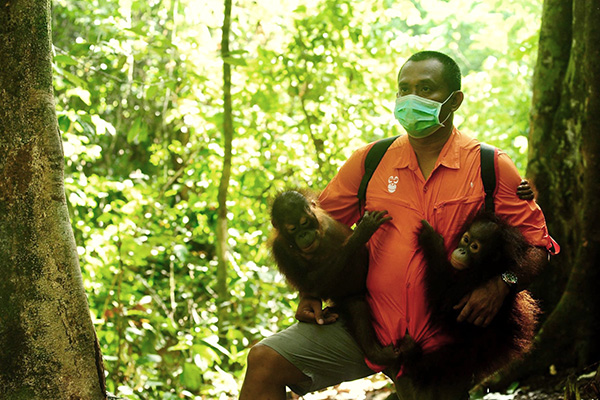
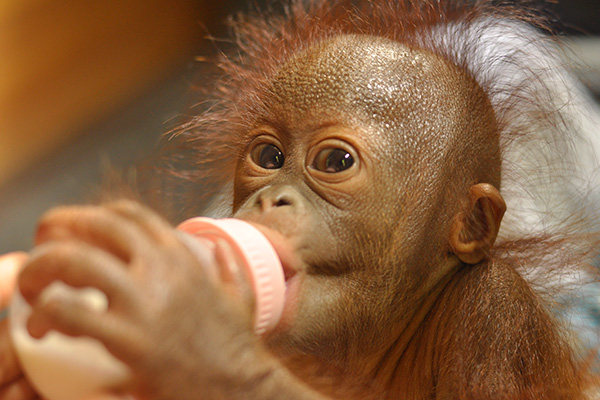
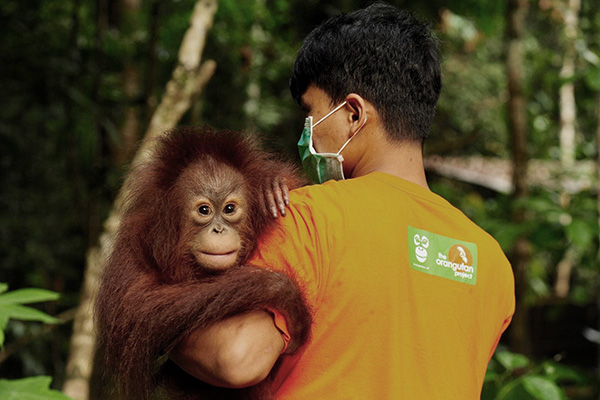
The APE Guardian team is responsible for releasing orangutans that have undergone extensive rehabilitation at COP Borneo and the pre-release islands into protected habitat and organizing communities to protect orangutan habitat in East Kalimantan. The team follow orangutans after release and closely monitor them to ensure they are adapting to life in the jungle. The Orangutan Project has provided significant funding to support COP on the ground since 2008 and we are now joint partners.